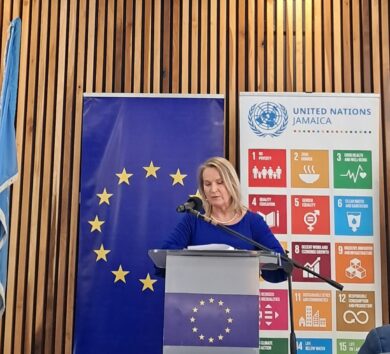

By December 2025, new urban renewal incentive legislation will be introduced to expand redevelopment zones, streamline approvals, and enhance incentives, among other things.
Prime Minister Dr Andrew Holness, said to drive urban renewal, the Urban Renewal (Tax Relief) Act, which since 1995 has incentivised investment in regenerating blighted areas, must be modernised.
“While it has supported 56 projects, mostly in downtown Kingston, with a handful in Spanish Town and Montego Bay, its impact has been limited. Of the J$25.8 billion in approved incentives, only J$8.5 billion has been utilised. The programme is set to expire in June 2026, presenting an opportunity for a more comprehensive framework to be developed,” he said.
Holness provided details while contributing to the 2025/26 Budget Debate in the House of Representatives last Thursday (March 20).
“We will adopt a phased approach, with certain areas being designated initially, and as those are developed, additional areas will be designated,” he said.
The prime minister informed that in the first phase, designated areas will include downtown Kingston, Central Kingston, Vineyard Town, Swallowfield, Olympic Gardens, Spanish Town Road, Caymanas, Montego Bay, Port Antonio, Lucea, Negril, and Morant Bay.
Holness said these areas will be formally reclassified as Urban Development Corporation (UDC) Designated Areas, allowing the UDC to spearhead development, as it successfully did in Negril and Ocho Rios many decades ago.
Additionally, he pointed out that the cumbersome approval process, which currently takes up to three years, will be replaced by a single approval portal under the UDC, drastically reducing delays and making investment more attractive.
“To further incentivise development, tax credits will become transferable. This means that unused tax credits associated with a particular property can be transferred upon sale to the new owner, enabling greater flexibility in structuring transactions, so that incentives can be fully utilised. With these reforms, this Government is laying the foundation for a new era of urban transformation,” Holness said.







Comments